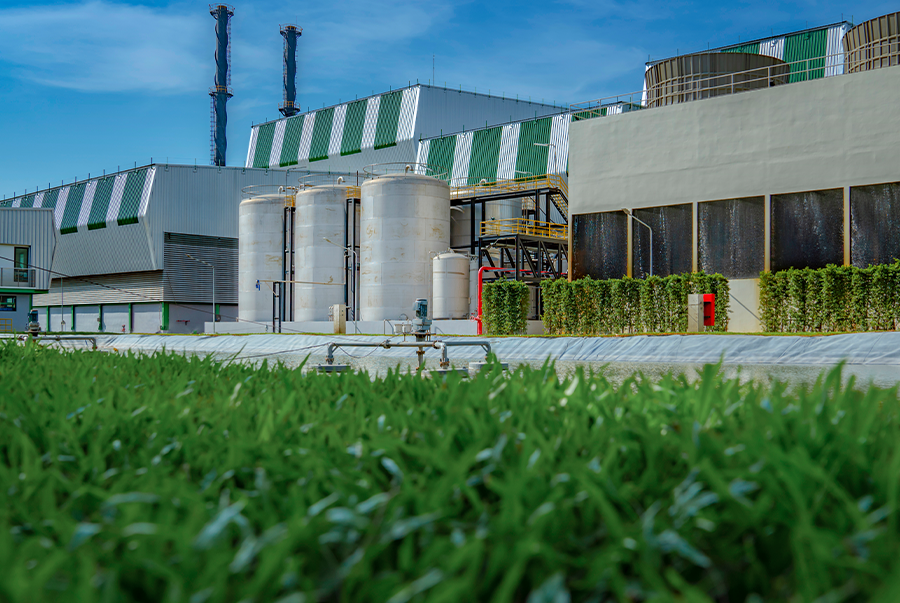ThaiBev’s Board of Directors oversees managerial performance, guides corporate strategy, and incorporates environmental and social standards to meet stakeholder interests. To address climate-related risks and opportunities at the corporate level, the Board of Directors established the Sustainability and Risk Management Committee (SRMC), which comprises independent directors, executive directors, and senior executives, to support strategic planning for sustainable development while also managing the overall risks of the ThaiBev Group.
See ThaiBev TCFD Report 2023
SRMC is tasked to oversee, monitor, and manage identified climate-related risks and opportunities as part of corporate material risks, including climate-related public policy engagement. And regularly monitor to ensure that engagement activities are aligned with the company’s commitments. If misalignment is found between positions of trade associations and our own climate position, the membership will be re-evaluated against the company’s other objectives and commitments. The management system covers all jurisdictions where we have operations.
ThaiBev supports two major Trade Associations in Thailand, namely The Federation of Thai Industries (FTI) and Thai Chamber of Commerce (TCC). And our executives have been assigned positions in Executive Boards of FTI
| Name |
Position
(ThaiBev) |
Trade Association |
Position
(Trade Association) |
| Kosit Suksingha |
Chief Non-Alcoholic Beverage Business |
FTI |
Vice President |
| Orathai Poonsup |
Chief Supply Chain Management |
TIPMSE (of FTI) |
Vice President |
TIPMSE or Thailand Institute of Packaging and Recycling Management was founded by FTI and private sectors from packaging and consumer products manufacturers, with the objectives to push forward Extended Producer Responsibility (EPR) principle, and to establish master plan for sustainable packaging management at national level
Through participation in trade associations, ThaiBev engages in shaping environmental-related policies and are able to align policy-influencing activities with its sustainability commitments as well as the Paris Agreement.
ThaiBev has been actively engaging in developing the Extended Producer Responsibility (EPR) law in Thailand. EPR principles are included in Thailand’s Plastic Waste Management Plan for 2019–2030 and the national agenda of resource management in the circular economy as part of the BCG Economic Model that supports Thailand roadmap to achieve Net Zero.
In December 2021, ThaiBev and its subsidiaries, joined a consortium in ‘The Intention Declaration of Extended Producer Responsibility’ to drive EPR through the PACKBACK program. Endorsed by the Ministry of Higher Education, Science, Research and Innovation (MHESI), the Ministry of Natural Resources and Environment, and the Ministry of Interior, the program has successfully been implemented on a pilot scale in Chonburi province, Thailand, since January 2022. The consortium consists of more than 70 parties including producers, retailers, recyclers, local government organizations, and research institutes in demonstrating the potential of EPR for the management of packaging waste. ThaiBev, as one of the major drivers of the EPR scheme, is in charge of managing PACKBACK pilot project in Chonburi province, and data collection on glass recycling to support the development of a national packaging database.
ThaiBev also supported the Department of Climate Change and Environment (DCCE) and Ministry of Natural Resources and Environment in organizing the Thailand Climate Action Conference (TCAC) in 2023. TCAC is considered a major platform that drives action on climate change in Thailand at all levels and in all sectors, and was joined by the Cabinet, ambassadors, international organizations, executives of government agencies, the private sector, and provincial governors. All parties have reported their progress and identify actions needed to be taken in order to reaffirm Thailand’s commitment to achieve carbon neutrality by 2050, and net-zero emissions by 2065, in line with the 1.5-degree Celsius goal under the Paris Agreement. As well as the Nationally Determined Contribution goal from 20% to 40% by 2030. The agenda includes disseminating operational progress, transferring global goals to operational directions in Thailand in order to be aware of the situation and jointly build readiness for action at all levels. The results from TCAC were reported during the 28th session of the Conference of the Parties to the Framework Convention (COP28) that took place in Dubai.
ThaiBev Group CEO, and Chief Sustainability and Strategy, also participated in ‘Climate Action Leaders (CAL) Forum’ organized by Thailand Greenhouse Gas Management Organization (TGO) of the Ministry of Natural Resources and Environment (MONRE). The objectives of CAL Forum are to promote climate action literacy on the state of the climate crisis, and to create a communication platform for leaders from all sectors to exchange ideas and experiences on GHG emission reduction strategy. At the end of the Forum, participants propose (Draft) Communication and (Draft) Declaration of Intent on Thailand Climate Action to achieve Net Zero and Carbon Neutral targets to the Minister of MONRE, which includes recommendations for climate-related policies such as Carbon Pricing, Green Taxonomy, Sustainable Finance, and establishment of Climate Change Department under the MONRE. The new department’s mission will be to set up policy, strategy and measures to deal with climate change and reduce greenhouse gas emissions in the country.



